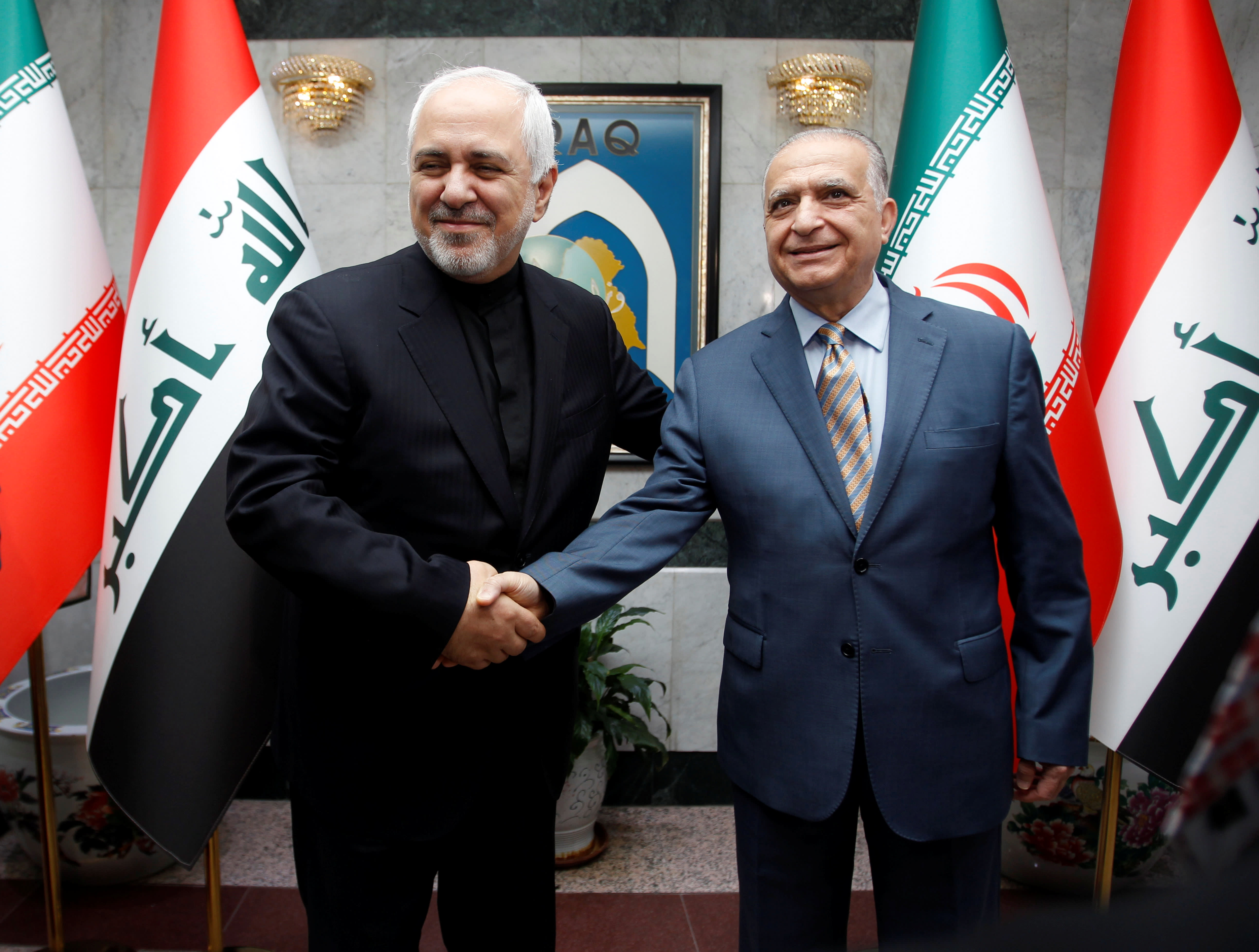Hits: 16

Iranian Foreign Minister, Mohammad Javad Zarif, shakes hands with Iraqi Foreign Minister Mohamed Ali Alhakim in Baghdad, Iraq May 26, 2019.
Khalid Al-Mousily | Reuters
Iraq offered Sunday to mediate in the crisis between its two key allies, the United States and Iran, amid escalating Middle East tensions and as Tehran’s nuclear deal with world powers steadily unravels.
Iraq’s foreign minister, Mohammed al-Hakim, made the offer during a joint news conference in Baghdad with visiting Iranian counterpart Mohammad Javad Zarif.
“We are trying to help and to be mediators,” said al-Hakim, adding that Baghdad “will work to reach a satisfactory solution” while stressing that Iraq stands against unilateral steps taken by Washington.
In recent weeks, tensions between Washington and Tehran soared over the U.S. deploying an aircraft carrier and B-52 bombers to the Persian Gulf over a still-unexplained threat it perceives from Tehran. The U.S. also plans to send 900 additional troops to the 600 already in the Mideast and extending their stay.
The crisis takes root in President Donald Trump’s withdrawal last year of the U.S. from the 2015 nuclear deal between Tehran and world powers that capped Iran’s uranium enrichment activities in return for lifting sanctions. Washington subsequently reimposed sanctions on Iran, sending its economy into freefall.
Trump has argued that the deal failed to sufficiently curb Iran’s ability to develop nuclear weapons or halt its support for militias throughout the Middle East that the U.S. says destabilize the region, as well as address the issue of Tehran’s missiles, which can reach both U.S. regional bases and Israel.
Zarif, who was been on a whirlwind diplomatic offensive to preserve the rest of the accord, insisted that Iran “did not violate the nuclear deal” and urged European nations to exert efforts to preserve the deal following the U.S. pullout.
Speaking about the rising tensions with the U.S., Zarif said Iran will be able to “face the war, whether it is economic or military, through steadfastness and its forces.” He also pressed for a nonaggression agreement between Iran and Arab countries in the Gulf.
The Shiite-majority Iraq has been trying to maintain a fine line as allies Tehran and Washington descended into verbal vitriol. The country also lies on the fault line between Shiite Iran and the mostly Sunni Arab world, led by powerhouse Saudi Arabia, and has long been a battlefield in which the Saudi-Iran rivalry for regional supremacy played out.
The mediation offer by al-Hakim, Iraq’s foreign minister, echoed one made Saturday by Mohamad al-Halbousi, the Iraqi parliament speaker. Al-Hakim also expressed concern for Iran’s spiraling economy.
Iranians make up the bulk of millions of Shiites from around the world who come to Iraq every year to visit its many Shiite shrines and holy places and their purchasing power has slumped after Trump reimposed the sanctions.
“The sanctions against sisterly Iran are ineffective, and we stand by its side,” al-Hakim said.
Be the first to comment